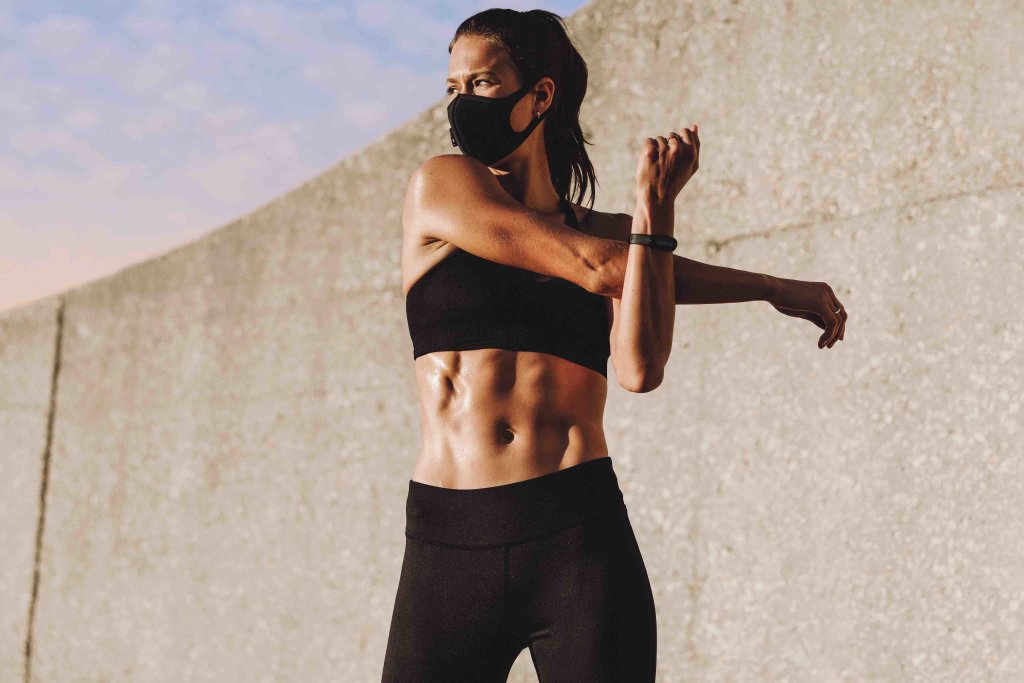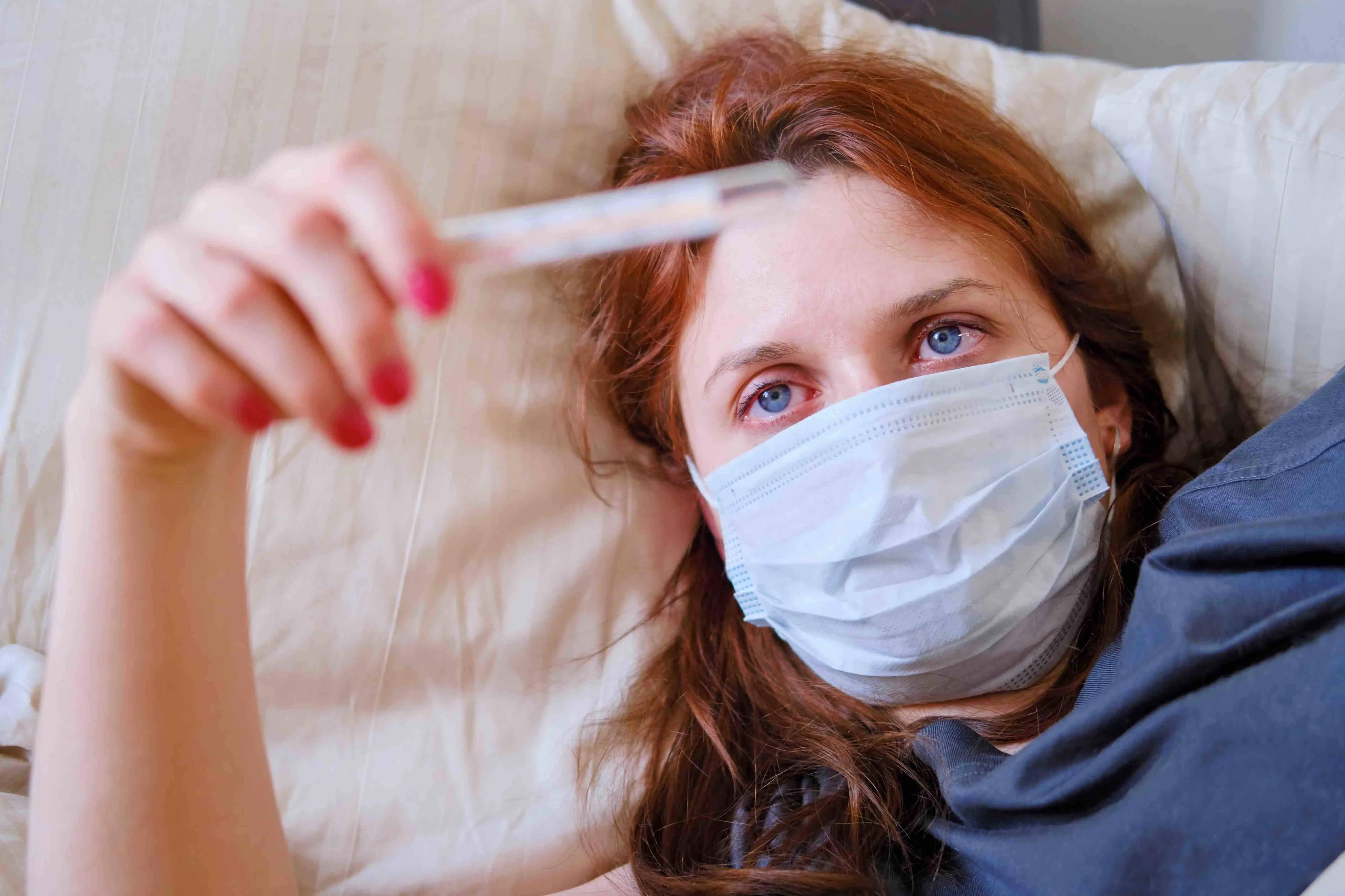Exercise After Covid: How To Return To Fitness Safely

January 11, 2022

If you’ve recently recovered from Covid-19, you might be wondering how long you should wait before you can safely start exercising again.
It’s important to remember Covid can affect people in different ways and much is still unknown about its long-term effects.
While some confirmed cases may present as asymptomatic or mild, others will need medical support and intervention to help manage and treat the virus and some people may even go on to experience Long Covid.
It is recommended you work with your doctor to work out how and when you can safely return to exercise if you are recovering from Covid.
Can you exercise while practicing social distancing?
With the number of cases on the rise you might be concerned about the prevalence of the virus. Regular exercise can benefit our overall mental and physical health, and a 2020 study of adult Covid patients found those who met recommended physical activity guidelines had a reduced risk of severe outcomes after contracting the virus.
The Australian Government has highlighted the importance of remaining physically active throughout the pandemic and the Centre for Disease Control and Prevention (CDC) in the United States recommends outdoor activities such as a socially distanced walk or bike ride if you’re trying to limit your interactions.
The Sweat app is designed for women who want to work out anywhere, anytime and includes a range of programs and on-demand workouts that can be done from home or outdoors.

Can you exercise while self-isolating?
While rules around self-isolation and quarantine differ around the world, if you have been exposed to Covid it is likely you will have to isolate from members of the community and your household.
If you are not displaying any symptoms of acute respiratory illness and have not been diagnosed with Covid, the World Health Organisation (WHO) recommends you stay physically active during this time.
While it can be more difficult to exercise while in isolation or quarantine - especially if you're trying to workout in a small space - the WHO recommends 150 minutes of moderate-intensity activity or 75 minutes of vigorous-intensity activity each week in an effort to curb sedentary behaviour while stuck at home.
There are a number of Sweat programs that can be done from home using home gym equipment or your bodyweight. If you’re new to working out at home, here are some tips for getting started.
If you begin to feel unwell while in isolation, the Cleveland Clinic advises you immediately stop exercising.
Can you exercise with Covid?
If you have returned a positive test or have symptoms of Covid you will be required to isolate and follow the relevant government health care directive for your region.
If you’re not feeling well, smashing a HIIT workout is probably the last thing on your mind. But even if you’re asymptomatic or only have very mild symptoms, it’s important to take the time to rest and recover from Covid.
While it might make you feel stressed or disappointed to miss a workout, now is the time to listen to your body and understand that exercising right now could leave you feeling even worse.

When can you exercise after Covid?
Just as symptoms can differ from person to person, so can the recovery period and there’s no one size fits all model for returning to exercise.
As part of its Your Covid Recovery program, the National Health Service in the United Kingdom recommends people get moving again after recovering from Covid and suggests slowly building up your activity level over time.
But what does a return to exercise after Covid look like? Well, it depends on a range of factors.
A January 2021 study on returning to physical activity after Covid-19 published in The BMJ concluded patients should only return to exercise following a week of no symptoms and begin with at least two weeks of minimal exertion.
The study suggested Doctors take a risk-stratification approach with their patients. Whether the person is ready to exercise, whether they required hospital treatment, whether they suffered from cardiac symptoms, whether they continue to experience ongoing symptoms and if they have had adverse psychological symptoms should all be taken into account when assessing whether someone is ready to begin a phased return to physical activity.
With a phased return, it’s important to take things at your own pace and drop back a stage if you’re finding it too difficult. You might not be ready to exercise yet and that’s totally okay! Remember to listen to your body and appreciate that it will take some time to return to your base level of fitness.
The BMJ study recommends the following phases for a return to exercise after Covid:
Phase 1:
Goal: Spend the week preparing for your return to exercise
Exercise: Rest, breathing exercises, flexibility/stretching, balance, gentle walking
Suggested Rate of Perceived Exhaustion (RPE): 6-9
Progression: 7 days
Phase 2:
Goal: Try a low-intensity activity such as walking, light yoga or light tasks in the house or garden
Exercise: Graduated increases by 10-15 minutes each day over a week
Suggested RPE: 6-11
Progression: 7 days and when you can walk 30 minutes at RPE 11
Phase 3:
Goal: Achieve a moderate-intensity aerobic and strength challenge
Exercise: Try two intervals of five-minute aerobic exercises separated by one block of recovery. Add one interval per day as tolerated
Suggested RPE: 12-14
Progression: 7 days and when you can achieve a 30-minute session and feel recovered an hour later
Phase 4:
Goal: Achieve a moderate-intensity aerobic and strength challenge with coordination and functioning skills
Exercise: Train for two days and then take a recovery day
Suggested RPE: 12-14
Progression: 7 days and when your fatigue levels feel normal
Phase 5:
Goal: Return to baseline exercise
Exercise: Resume your regular workout routine or program
Suggested RPE: >15 as tolerated
When returning to exercise after recovering from Covid, it’s important you continue to monitor for setbacks and symptoms.
It’s advised you should only exercise if you feel recovered from the previous day’s activity and have no new or returning symptoms.
If you suffer from an abnormal shortness of breath, experience a return of symptoms or feel anxious or down, you should seek medical advice.

A more empowered you starts with Sweat, and our editorial team is here to bring you the latest fitness tips, trainer recommendations, wellbeing news, nutritional advice, nourishing recipes and free workouts.
* Disclaimer: This blog post is not intended to replace the advice of a medical professional. The above information should not be used to diagnose, treat, or prevent any disease or medical condition. Please consult your doctor before making any changes to your diet, sleep methods, daily activity, or fitness routine. Sweat assumes no responsibility for any personal injury or damage sustained by any recommendations, opinions, or advice given in this article.
Fitness